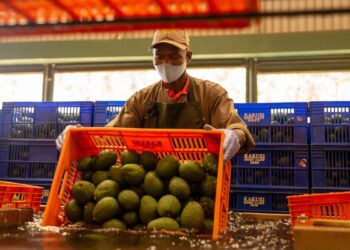Elon Musk’s work on the optional AI future vision has reignited global debates on universal basic income and human purpose, as the tech mogul predicts that in 10 to 20 years, employment will become a choice rather than a necessity thanks to advanced artificial intelligence and humanoid robots.
Speaking at the Milken Institute Global Conference on November 14, Musk painted a post-scarcity world where “work will be optional”, declaring that “money will stop being relevant at some point in the future” and “AI & humanoid robots will actually eliminate poverty…and make everyone wealthy.”
The remarks, delivered with his trademark blend of optimism and provocation, quickly fuelled online firestorms, with critics interpreting them as an unwitting echo of the World Economic Forum’s “you will own nothing and be happy” slogan.
Musk elaborated that rapid progress in AI, particularly through xAI’s Grok models and Tesla’s Optimus robots, would create abundance so profound that traditional jobs would vanish for those who want out.
“You’ll be able to have whatever you want, essentially for free,” he explained, envisioning robots handling manufacturing, services, and even creative tasks at costs plummeting to pennies.
The timeline aligns with Tesla’s updated Optimus rollout, now targeting limited factory deployment in 2026 and consumer sales by 2027 at under $30,000 per unit. “Universal high income, not basic income,” Musk clarified, suggesting society would provide generous stipends funded by robotic productivity, freeing humans for art, exploration, or leisure.
The statement landed amid Tesla’s strongest quarter in two years, with Q3 deliveries up 6 per cent and energy storage booming, bolstering Musk’s credibility even as sceptics pounced.
On X, where Musk commands 200 million followers, the phrase “own nothing and be happy” trended within hours, with users juxtaposing his words against WEF videos from Davos.
“He’s literally saying the quiet part out loud,” posted one viral account, amassing 50,000 reposts. Others defended the nuance: “It’s abundance, not austerity. Robots make everything cheap, not confiscate it.”
The backlash echoes 2020 conspiracy theories around Great Reset narratives, now revived as Musk’s influence spans SpaceX, Neuralink, and the U.S. Department of Government Efficiency under Trump.
Economists offered measured takes. Nobel laureate Joseph Stiglitz, speaking on CNBC on November 15, warned that without redistribution mechanisms, AI-driven wealth could concentrate further, creating “a leisure class and a servant class of robot owners.”
Oxford’s Carl Benedikt Frey, author of “The Technology Trap”, countered that historical precedents, like the industrial revolution, show technology eventually lifts living standards, though transitions are painful.
“Musk’s timeline is aggressive, but the direction is plausible,” Frey noted, citing studies projecting 47 per cent of jobs automatable by 2040. Musk doubled down on X, posting: “With AI & robots providing abundance, the meaning of life will no longer be work. It will be whatever you want it to be.”
He dismissed ownership concerns: “You’ll still own things; they’ll just be so cheap it barely matters.” The exchange highlighted his evolving philosophy, shaped by sci-fi inspirations like Iain Banks’ Culture series, where post-scarcity societies thrive on voluntary pursuits.
As November 20 unfolds, Elon Musk’s work-optional AI future prophecy divides opinion like few others: a utopian dream for some, a dystopian warning for others. In a world racing toward AGI, his words aren’t just speculation – they’re a roadmap. Whether humanity embraces the leisure or fears the leash, one thing is clear: the conversation about work’s end has only just begun.















